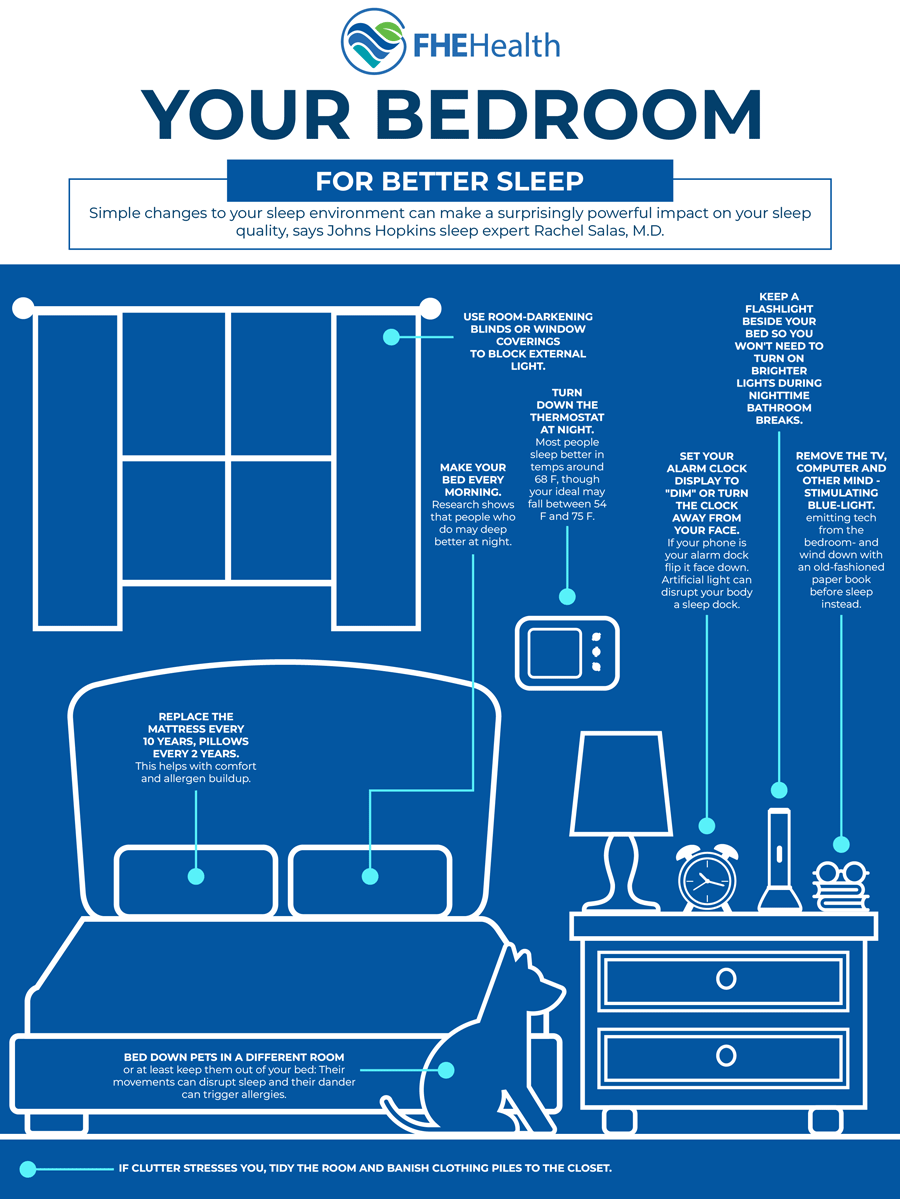
Getting the right amount of sleep is crucial to our physical and mental well-being. Everyone is different, but the general rule is that the average adult needs at least seven hours of sleep each night for optimal health. In the real world, however, that doesn’t always happen. Maybe you stay up all night due to bouts of anxiety or you have a physical issue that prevents you from staying asleep. You’re not alone.
If you’ve ever googled help for insomnia, you may have noticed that many of the same tips for going to sleep show up over and over again. Who hasn’t read that exercising and curbing caffeine intake can help you sleep better, for example? In the next sections, we’ll try to offer some less heard-of, more creative suggestions that can boost your chances of getting a restful night of sleep.
Try a Sleep App
The general rule of thumb is to stay off of your phone or any other device for at least 30 minutes before bed. This ignores the potential benefit of using your phone as an insomnia treatment. Sleep apps that provide white noise, peaceful meditations, or boring bedtime stories can bring much-needed relief. The background noise may take your mind off of thoughts that are keeping you up, while also blocking out any sounds that might awaken you suddenly.
Listening to these programs regularly will build a habit that trains your body to feel sleepier each night when you turn them on. Some sleep apps even come with timers and other cool tools that will help enforce these good sleep habits, improving your chances of falling asleep each night.
Make Some Adjustments
Our environments play a massive role in how well we sleep. Studies show that a clean room offers better rest, as does one that has an ideal temperature. Next time you’re struggling to catch some z’s, consider adjusting the room’s temperature a bit or, if possible, clean up around your bed. Clean sheets also help.
You might also consider swapping out your bedding. As you may know, insomnia and conditions like depression and anxiety influence each other heavily. In several studies on weighted blanket effectiveness, researchers found that participants had fewer insomnia and depression symptoms. Since weighted blankets can be a bit pricey, try alternatives like stacking multiple sheets, heavy clothing, or bath towels.
Block It All Out
We’ve already mentioned how blocking out sound with white noise can improve your chances of getting some rest, but it doesn’t have to stop there. Humans are constantly reacting to stimuli, usually subconsciously. Limiting the potential stimuli could help you enter a more peaceful state. The most common way to do this is by wearing an eye mask to block ambient light. Some people like to use eye masks that are chillable, providing a relaxing, cool sensation on top of keeping the light out.
You can also help yourself sleep using your sense of smell. Aromatherapy utilizes the idea that certain smells evoke specific feelings and sensations. Though it’s different for everyone, scents like lavender and jasmine are famous for their calming properties. Using a candle warmer or a scent diffuser will help block out smells that could bother you and replace them with pleasant, relaxing ones.
Many people have sensory issues with certain fabrics and materials. Some pajamas can have too much of a tactile input, so a large cotton shirt may feel much more freeing. On the other hand, some people may need more tactile input, so compression shirts may be a good choice.
Manage Those Late-Night Thoughts
In the moments when their brain should be the quietest, many people with depression and anxiety find that their thoughts—oftentimes negative—keep coming. Worries about the past and future are common, usually involving things far beyond our control.
Similarly, have you ever been stuck in a loop of thoughts where you know you should be going to sleep, but that thought only causes you more stress, which keeps you awake? People across the globe experience this all the time.
You might think that the solution to these problems is to just not think about them, but the brain is not always good at managing negatives. When you try not to think about something, that topic is often all that comes to mind.
Instead, try to focus your thinking on another idea—ideally something that soothes you. For some people, this could be pleasant things that happened that day or something they’re looking forward to. Spiritual individuals might find relief in prayer or reciting meaningful quotes. In a way, this is a form of mindfulness, which is known to help fight issues like insomnia, depression, and anxiety.
You can also set some time aside each day for processing the things that are bothering you. Trying to reframe them in a more positive light may stop them from bothering you in the middle of the night. This can be pretty difficult and may require the help of a professional counselor who has experience helping people with sleep troubles.
When to Ask for Help
Sleep issues are so widespread that many people feel that going to a professional is unnecessary. After all, insomnia is just part of living, right? That doesn’t have to be the case. Because our sleep is so tightly linked to our mental and physical health, ignoring frequent insomnia can be as bad as ignoring any other underlying disease.
If you’re struggling to get to sleep and nothing seems to be working, reach out to a medical professional you trust. Whether your sleep problems stem from a physical issue or a mental one, experienced healthcare providers can put you on the path to a good night’s sleep.
Often, this involves finding ways to help you manage issues with stress, depression, and anxiety symptoms. Everyone is different, so finding out what works for you is key. Therapies might be necessary and some individuals require medication.
At FHE Health, our professionals can create custom treatment paths that help. If you—or someone you know—is struggling to fall asleep, contact us. Regardless of what the cause might be, we can help you find the secret to a good night’s rest.







